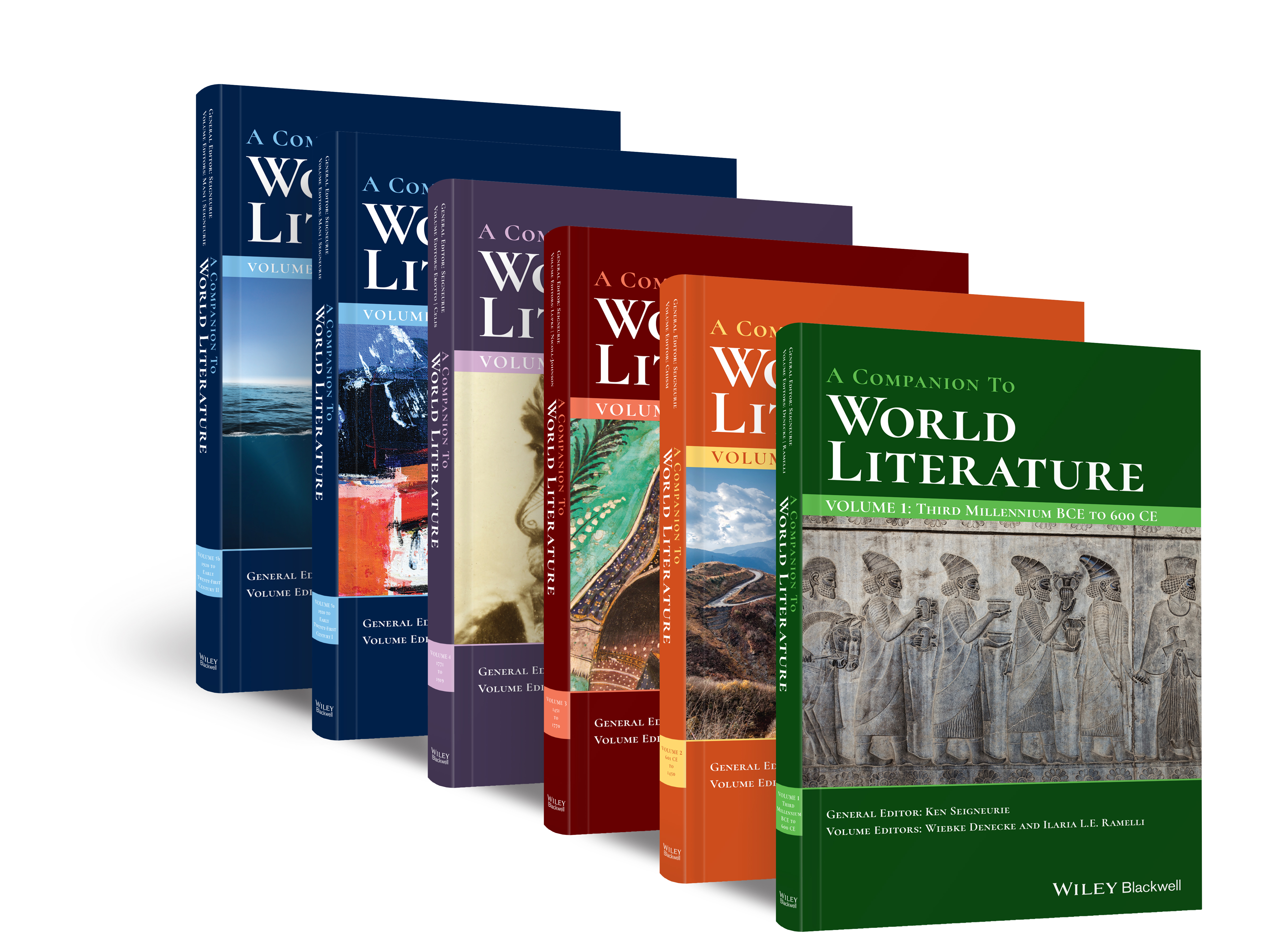Defying Borders: Anton Chekhov's Elusive Genius
1771 to 1919
Realism and Modernism
First published: 19 December 2019
Abstract
This chapter is occupied with the creative legacy of the great Russian writer Anton Chekhov (1860–1904) in the context of world literature, addressing the phenomenon of his continuing international acclaim. It thus discusses creative appropriation of Chekhov's oeuvre worldwide, drawing on the elusive nature of his authorial voice. Chekhov's popularity in a number of places, including Japan, China, Africa, and the English-speaking world, is analyzed in the light of cultural constants.
References
- Bartoshevich, Aleksei. 2011. “ Fedor Komissarzhevsky: tot, kto otkryl Anglii Chekhova.” In Chekhoviana: Vzgliad iz XXI veka, edited by V.B. Kataev et al., 331–337. Moscow: Nauka.
- Belyi, Andrei. 2002. “ Chekhov”. In A.P. Chekhov: Pro et Contra. Antologiia, edited by Igor Sukhikh and Andrei Stepanov, 831–842. St. Petersburg: Russian Christian University for Humanities.
- Bitov, Andrei. 2004. “ Moi dedushka Chekhov i pradedushka Pushkin.” In Chetyrezhdy Chekhov, edited by Igor Klekh, 3–16. Moscow: Emergency Exit. (Short version in Novaia Gazeta, 49, 12 August 2004.)
- Brahms, Caryl. 1966. “Chekhov, the Dramatist of Farewells.” The Times, 23 May.
- Calderon, George. 1912. “The Russian Stage.” The Quarterly Review, 217 (432): 21–42.
- Chekhov, A.P. 1975. Polnoe sobranie sochinenii i pisem v 30 tomakh. Pisma v 12 tomakh, vol. 2, 326. Moscow: Nauka.
- Chekhov, Anton. 1999. The Essential Tales of Chekhov, translated by Constance Garnett. London: Granta.
- Chekhov, Anton. n.d. “The Lady with the Dog,” translated by Constance Garnett. https://www.gutenberg.org/files/13415/13415-h/13415-h.htm, accessed January 2019.
- Chekhov, A.P., and A.M. Gorky. 1984. Perepiska v 2 tomakh (Correspondence in 2 volumes), vol. 1, edited by M.P. Gromov, A.M. Dolotova, and V.V. Kataev. Moscow: Khudozhestvennaia literatura.
- Eikhenbaum, Boris. 1944. “O Chekhove.” Zvezda, 5–6: 75–79.
- Fang Sun. 1954. “Pamiati Chekhova.” Wenyi yuebao, 7: 10. (Cited in Serebriakov 2005.)
- Gorenshtein, Fridrikh. 2001. Psalom. Moscow: Eksmo-Press.
- Gorky, A.M. 1953. Sobranie sochinenii v 30 tomakh, vol. 28. Moscow: GIKhL.
- Grigor'ev, M. 1924. Stsenicheskaia kompozitsiia chekhovskikh p'es. Moscow: KUBSa VLKhI.
- Gromov, M.D. 2005. “ Proizvedeniia Chekhova v tropicheskoi i iuzhnoi Afrike.” In Literaturnoe nasledstvo, vol. 100, book 3, 287–288. Moscow: IMLI RAN.
- Grossman, Vasilii. 1989. Zhizn i sudba. Moscow: Knizhnaia palata.
- Iskander, Fazil. 1999. Siuzhet sushchestvovaniia. Moscow: Podkova.
- Karlinsky, Simon. 1997. Anton Chekhov's Life and Thought: Selected Letters and Commentary. Evanston, IL: Northwestern University Press.
- Le Fleming, Stephen. 1993. “ Coping with the Outlandish: The English Response to Chekhov's Plays 1911–1926.” In Chekhov on the British Stage, edited by Patrick Miles, 54–64. Cambridge: Cambridge University Press.
- Li Lian-Shu. 2005. “ Vliianie Chekhova na kitaiskikh pisatelei.” In Literaturnoe nasledstvo, vol. 100, book 3, 52. Moscow: IMLI RAN.
- Mao Dun. 1960. “Epokhalnoe znachenie Chekhova.” Shize wenye youye, 1: 128. (Cited in Serebriakov, 2005.)
- Middleton Murry, John. 1920. Aspects of Literature. London: William Collins.
- Middleton Murry, John. 1922. “The Method of Tchehov.” Athenaeum, 8 April: 57–58.
- Minor, Kyle. 2013. “Chekhov's Story Mirrors Russia's Own.” Salon, 23 May. http://www.salon.com/2013/05/23/chekhovs_story_mirrors_russias_own/, accessed December 2018.
- Mirsky, D.S. 1927. “Chekhov and the English.” The Monthly Criterion, 6: 292–304.
- Nayman, Anatoly. 1991. Remembering Anna Akhmatova, translated by Wendy Rosslyn. London: Peter Halban.
- Nemirovich-Danchenko, V.I. 1952. Statii. Rechi. Besedy. Pisma. Moscow: Iskusstvo.
- Pasternak, Boris. 2010. Doctor Zhivago. London: Vintage.
- Rozanov, Vasilii. 1990. Sochineniia. Moscow: Sovetskaia Rossiia.
- Satō, Seirō. 2005. “ P'esy Chekhova v Iaponii (1910–1980).” In Literaturnoe nasledstvo, vol. 100, book 3, 133. Moscow: IMLI RAN.
- Sedakova, Olga. 2013. Apologiia razuma, 2nd edn. Moscow: Russkii put.
- Serebriakov, E.A. 2005. “ Chekhov v Kitae.” In Literaturnoe nasledstvo, vol. 100, book 3, 28. Moscow: IMLI RAN.
- Shestov, Lev. 1916. “ Creation from the Void.” In Anton Chekhov and Other Essays. London.
- Stepanov, Andrei. 2002. “ Chekhov kak zerkalo russkoi kritiki.” In A.P. Chekhov: Pro et Contra. Antologiia, edited by Igor Sukhikh and Andrei Stepanov, 976–1007. St. Petersburg: Russian Christian University for Humanities.
- Verheul, Kees. 1992. “ Tishina u Akhmatovoi.” In Akhmatovskie chteniia, issue 1, edited by N.V. Koroleva and S.A. Kovalenko, 14–20. Moscow: Nasledie.
- Wang Pu. 1989. “Cekhov i ‘tendentsiia de-dramatizatsii’ kitaiskoi dramy.” Waiguo wenxue pinglun, 4: 111. (Cited in Li Lian-Shu 2005.)
- Wang Xiyan. 1981. Knigi i zhizn. Guangzhou, page 82. (Cited in Serebriakov 2005.)
- Wood, James. 1999. The Broken Estate: Essays on Literature and Belief. London: Jonathan Cape.
- Yanagi Tomiko. 2005. “ Chekhov v Iaponii. Perevody, kritika, otkliki pisatelei.” In Literaturnoe nasledstvo, vol. 100, book 3, 79. Moscow: IMLI RAN.
Further Reading
- Chekhov, Anton. 2004. A Life in Letters, edited by Rosamund Bartlett and translated by Anthony Phillips. London: Penguin.
- Chudakov, A.P. 1983. Chekhov's Poetics, translated by Edwina Jannie Cruise and Donald Dragt. Ann Arbor, MI: Ardis Publishers.
- Finke, Michael C. 2005. Seeing Chekhov: Life and Art. Ithaca, NY: Cornell University Press.
- Golomb, Harai. 2014. A New Poetics of Chekhov's Plays: Presence Through Absence. Eastbourne, UK: Sussex Academic Press.
- Kataev, Vladimir. 2002. If Only We Could Know! An Interpretation of Chekhov, translated and edited by Harvey Pitcher. Chicago: Ivan R. Dee.
- Rayfield, Donald. 2000. Anton Chekhov: A Life. London: Faber & Faber.



